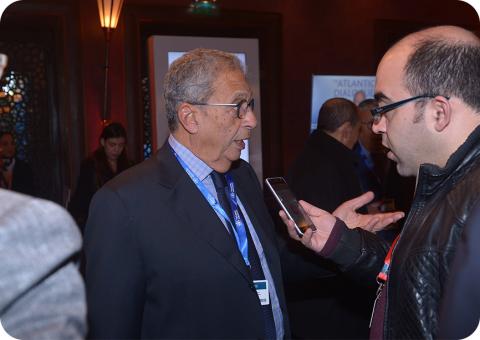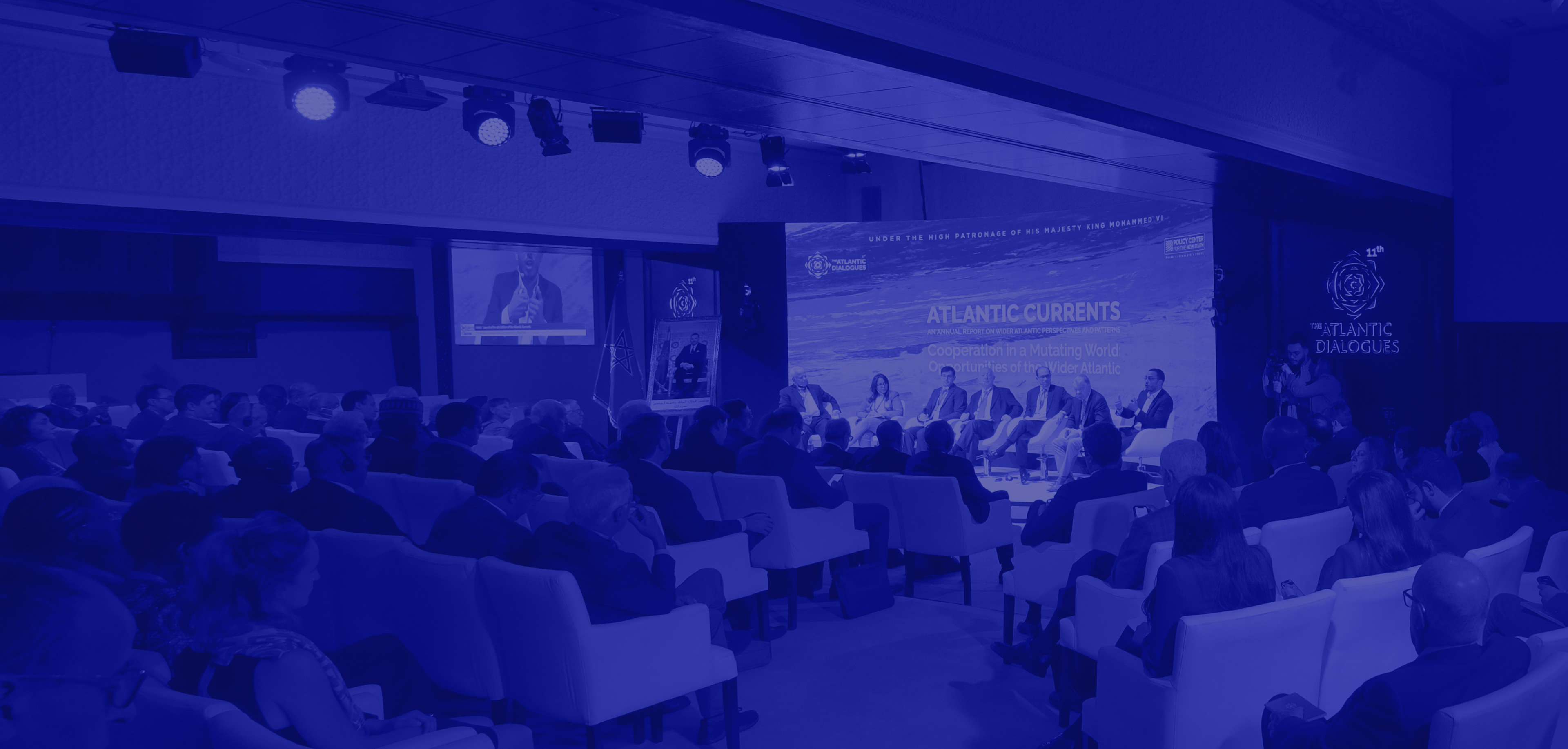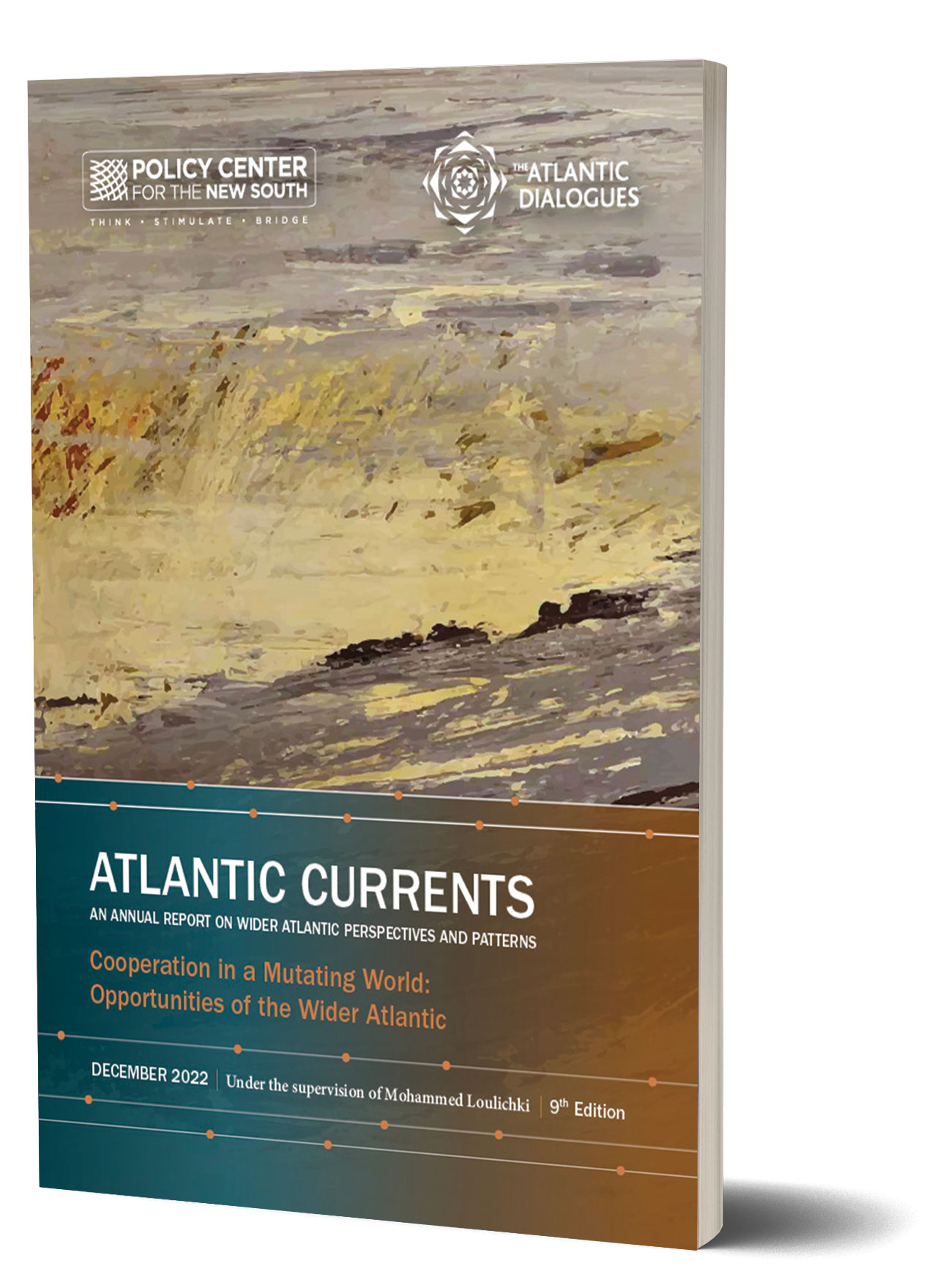
This ninth edition of “Atlantic Currents” appears in an international context marked predominantly by a ten month-war between Russia and Nato members that began February 2022. The war is affecting not only


14-16
December, 2023
Marrakesh, Morocco
The Policy Center for the New South will be holding the 12th edition of The Atlantic Dialogues, its annual high-level international conference, from December 14th to 16th in Marrakech, Morocco. The Atlantic Dialogues is an annual high-level gathering of influential public and private sectors leaders from around the Atlantic Basin for open, candid and informal discussions on cross-regional and cross-sectoral issues.
Launched in 2012, The Atlantic Dialogues have reached a milestone since they have been running for over a decade. The initial vision was to underscore the growing importance of Africa and Latin America as actors in the Southern Atlantic space by transforming mindsets, mental maps and narratives. Many editions that ensued have addressed key strategic issues with over 400 participants each year from Africa, Latin America, Europe and North America, former presidents and ministers, representatives of major institutions, CEOs, experts and seasoned African, European and US journalists to anchor the panels.
Following the discussion in 2022 on “Cooperation in a Mutating World: Opportunities of the Wider Atlantic” to explore renewed collaboration in times of crises, the AD community will convene again to reflect on what assertiveness can mean for the Atlantic, and what a more assertive Atlantic can mean for the world. To this end, the 2023 edition of the conference will focus on the following theme, "A More Assertive Atlantic: Its Meaning for the World”.
The idea of a more assertive Atlantic is at the root of a number of economic, political and security trends that have the potential to significantly impact on the world. A deeper understanding of the meaning and potential implications of this new perception of the Atlantic Basin is needed, as it marks a shift in the dynamics of the region. Understanding this phenomenon requires exploring different perspectives from Africa, Europe and the Americas.

This ninth edition of “Atlantic Currents” appears in an international context marked predominantly by a ten month-war between Russia and Nato members that began February 2022. The war is affecting not only
Interview with Otaviano Canuto, Senior Fellow at the Policy Center for the New South
Karim El Aynaoui
Executive President, Policy Center for the New South
Morocco
Lilia Rizk
Manager - Emerging Leaders Unit, Policy Center for the New South
Morocco
The final plenary is dedicated to the Atlantic Dialogues Emerging Leaders (ADEL), a tailor-made leadership program gathering young professionals from across the Atlantic before and during the conference. This year, the ADEL program connects 30 women and men, aged 25 to 35, who have been selected from a pool of over 1600 applicants. These young professionals have demonstrated leadership in their fields and aim to shape the regional and global agenda in politics, finance, business, civil society, academia and the media.
This year’s program, held from December 11 to 13, consists of structured group conversations with decision and opinion makers on key Atlantic development and cooperation issues, informal meetings with innovative community leaders and think tank representatives, and innovative workshops and sessions on collective intelligence, leadership and public policy, to name a few. It also leads to the creation of an interconnected community of 350 Alumni, that the Policy Center is following and inviting in various activities.
Every year, the final plenary of the Atlantic Dialogues conference is dedicated to the Emerging leaders. It provides a platform for the younger generation of Atlantic leaders to share their perspectives on the topic of their choice, but also serves a refreshing conference send-off. The group votes for four of their peers to represent them on stage, a customary way for the Policy Center to close the conference.
Latin America (LATAM) was severely affected by COVID-19 as it accounted for a high mortality rate, a decelerating economic performance and food insecurity has been on the rise. Soaring inflation has therefore taken place with no abating signs. However, opportunities for growth, investment and poverty reduction lurk for LATAM amidst the Eastern Europe conflict. LATAM states, especially large commodity exporters, are presented before a historical chance to take advantage of the current geopolitical turmoil. Raising commodity prices and diversifying its exports from primary to manufacturing products could eventually pay enormous dividends for LATAM. Nevertheless, addressing inflationary pressures cannot be fully realized without a strong interstate cooperation that would form a consolidated region, regardless of internal divisions and ideological differences.
- How is a potentially consolidated LATAM perceived, despite power asymmetries between its member states?
- Will existing trade agreements in LATAM, such as Mercosur, the Central American Common Market (CACM), and the Andean community, forge the path to a unified region with sufficient capabilities to fight the crisis?
- What are the odds of LATAM considerably replacing Russia’s role as a major raw material exporter in the status quo? What effects on the Wider Atlantic?